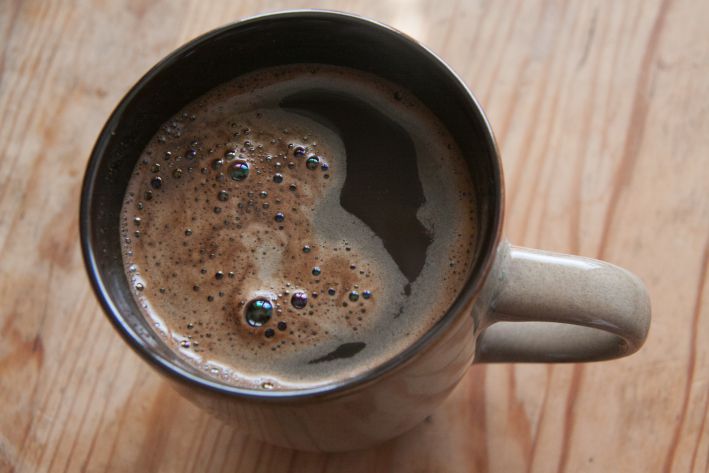Coffee Before Bed: Daytime Nap After a Cup of Coffee
Taking a nap after drinking a cup of coffee has recently gained popularity as a way to boost energy and focus during the day.
This unusual method combines coffee and a short nap, which at first glance seems contradictory. What is the reality?
How Caffeine Affects the Brain
Caffeine is a natural substance found in tea leaves, holly, coffee seeds and cocoa. It is the most widely used stimulant in the world. As early as the Middle Ages, people noticed its stimulating effect when they felt a surge of energy after drinking coffee seeds brewed in water.
Today we know that caffeine owes its effects to adenosine. This substance is formed in our cells and then binds to the corresponding receptors, which are most numerous in the brain.

The effect of adenosine binding to receptors is to reduce the excitability of nerve cells and inhibit the secretion of neurotransmitters.
This is a protective mechanism of the body that protects neurons from excessive stimulation. However, excessive saturation of adenosine receptors gives a feeling of drowsiness and fatigue.
Caffeine, entering the blood, blocks adenosine receptors, which in turn increases the release of neurotransmitters (acetylcholine, norepinephrine, dopamine).
This leads to increased activity of the nervous system and stimulation of the body. As a result, the feeling of fatigue and drowsiness decreases, mood and concentration improve, and psychophysical performance increases.
What is coffee sleep
Taking a nap with a cup of coffee is a way to quickly recover. It is a combination of a cup of coffee and a short nap that we take immediately after drinking coffee.
It turns out that this unusual combination allows you to maximize the effect of the energy surge.
In one study, night shift workers took a 30-minute nap at 3:30 a.m. Part of the group drank coffee containing 200 mg of caffeine before bed, while the control group received a placebo of decaf coffee.
It turned out that employees who took a real nap with a cup of coffee had significantly higher levels of concentration and less subjective fatigue. The authors of the study suggested that short caffeinated naps, practiced in the workplace, will improve the performance of employees on the night shift.
What are the effects of coffee sleep
Even though the coffee nap is short, it produces immediate results:
- reduces drowsiness and fatigue,
- adds energy,
- improves reaction speed,
- increases concentration and attentiveness,
- improves the memorization of new information,
- increases productivity and psychophysical performance,
- improves mood,
- has a positive effect on coordination of movements.
- In Japan, there are cafes equipped with beds or chairs where you can take a nap after drinking coffee.
Taking a nap with a cup of coffee during the day is healthy and safe
The stimulating effects of caffeine last for about 8 hours, during which time it can make it difficult to fall asleep.
So if you usually go to bed at 10 p.m., plan your coffee nap no later than 2 p.m. To help you fall asleep, ventilate the room and darken the windows. You can also use earplugs and cover your eyes with a blindfold.
The duration of daytime sleep should not exceed 30 minutes. The process of awakening after a long sleep is more complex and is usually accompanied by an initial feeling of deterioration in health.
Also, a long nap during the day can make it difficult to fall asleep at night. So, after drinking a cup of coffee, set your alarm for 20 minutes just in case.
Don't increase the amount of coffee you drink per day just to practice coffee sleep.
Rather, it should be a help in emergency situations, for example, after a sleepless night. Increasing the amount of caffeine consumed causes a kind of addiction. The strength of its effect on the body depends on the frequency of use.
When we drink coffee frequently, tolerance mechanisms are created by increasing the number of adenosine receptors.
So if we get our body used to drinking more coffee throughout the day, we will always have to reach for another cup later to achieve the same level of stimulation.
In addition, excess caffeine can cause unpleasant side effects such as sleep disturbances, increased heart rate, and impaired iron absorption.
The safe dose of caffeine for an adult is a maximum of 300-400 mg per day (3-4 cups). If you are pregnant, do not exceed 200-300 mg per day.
Remember that a daytime nap with a cup of coffee does not replace a healthy night's sleep. Make sure you get 7-8 hours of uninterrupted nighttime rest every day, which will ensure the regeneration of your body.
It was previously reported why it is healthy to eat salmon .
